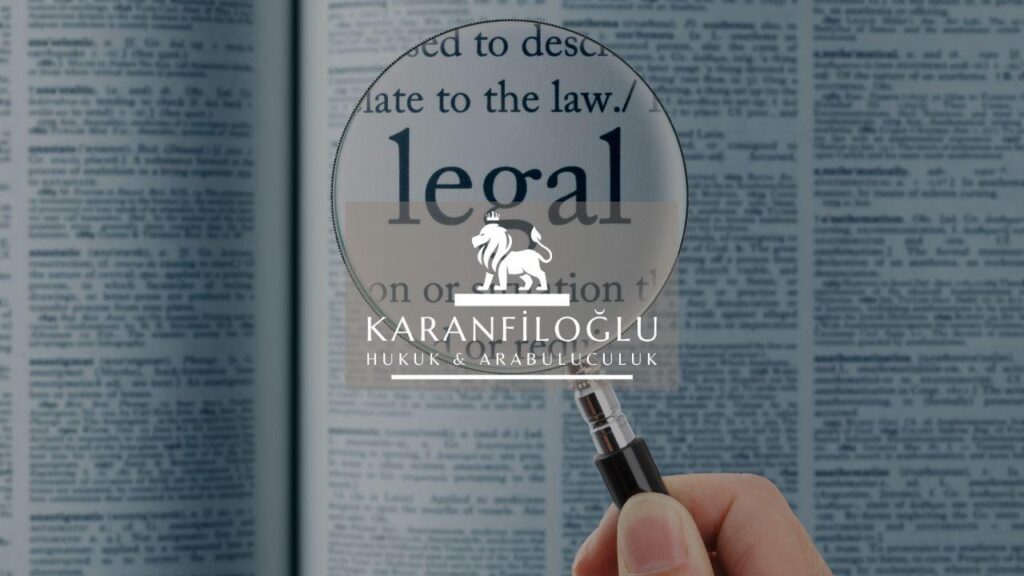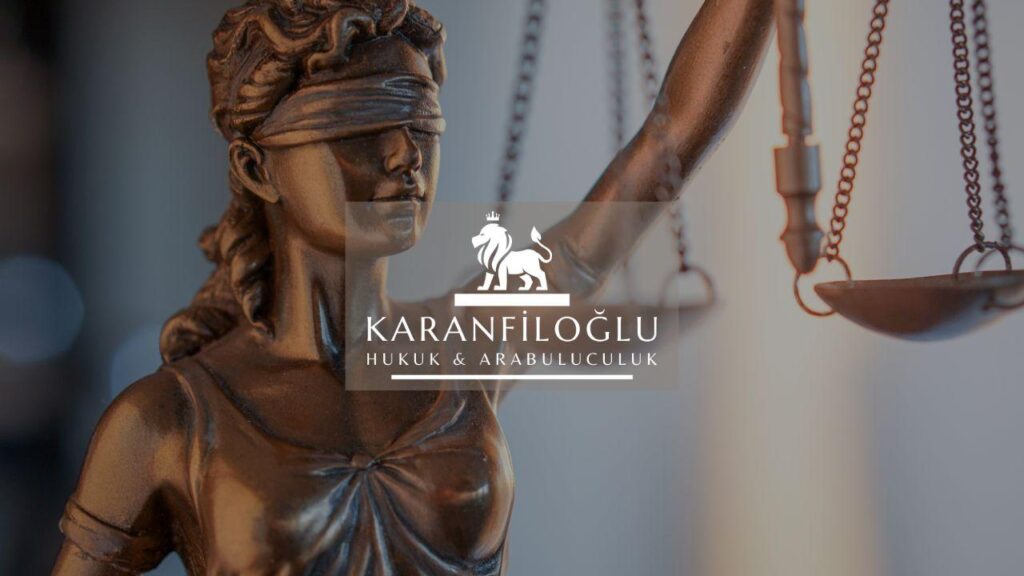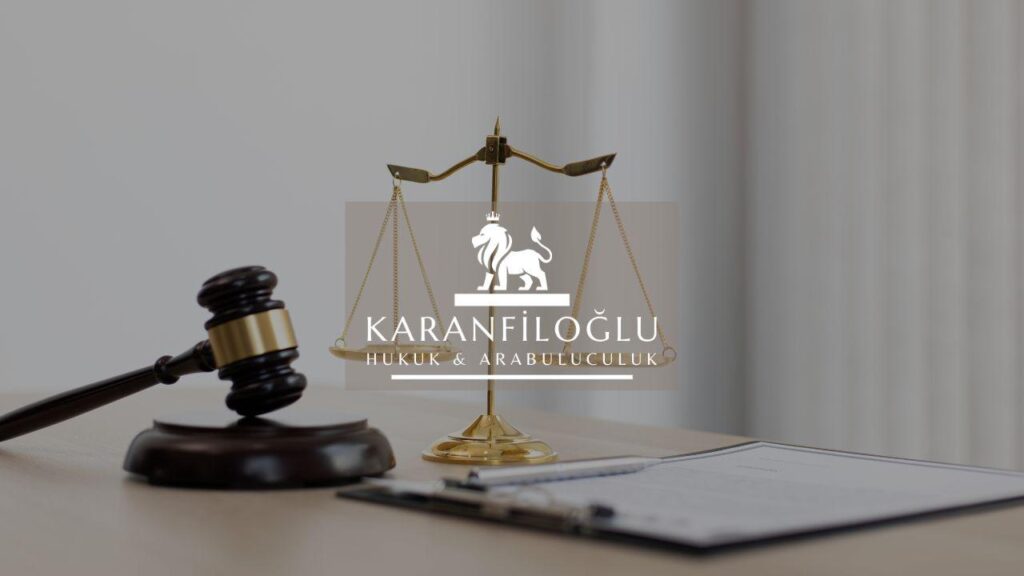The protection and welfare of animals in Turkey are governed by a comprehensive legal framework designed to prevent cruelty, ensure proper care, and promote ethical treatment. Key legislative documents include Law No. 5199, the Animal Protection Law, which outlines fundamental principles and obligations regarding the welfare of animals, as well as related regulations such as the Animal Protection Regulation. Article 4 of Law No. 5199 establishes the general principles of humane treatment towards animals, while Article 14 specifies prohibited actions, including the infliction of pain, suffering, and unnecessary distress. The Turkish Penal Code (Article 151) also imposes criminal sanctions for the theft and killing of pets and other animals. At Karanfiloglu Law Office, we assist our clients in navigating these legal provisions to ensure compliance and to advocate for the rights and protection of animals affected by various circumstances. Our expert team is dedicated to providing informed legal counsel and robust representation in all matters related to animal welfare.
Historical Evolution of Animal Welfare Legislation in Turkey
The historical evolution of animal welfare legislation in Turkey dates back to the early 20th century but gained significant momentum with the enactment of Law No. 5199, the Animal Protection Law, in 2004. Prior to this, animal welfare was largely governed by general civil and penal codes, which offered limited protection and primarily addressed issues such as animal theft and cruelty in a broader context. The introduction of Law No. 5199 marked a pivotal shift towards comprehensive and specific legislative measures designed to safeguard animal rights, reflecting growing societal awareness and ethical considerations towards animals. This pioneering law not only established the foundational principles of humane treatment but also laid the groundwork for subsequent regulations such as the Animal Protection Regulation, which accelerates its implementation and elaborates on specific standards and responsibilities for animal care. It represented a progressive step in aligning Turkey’s legal framework with international norms and practices regarding animal welfare.
Following the enactment of Law No. 5199, there was a concerted effort to broaden and deepen the scope of animal protection in Turkey, leading to the development of more detailed regulations and amendments. In 2006, the Ministry of Environment and Forestry introduced the Animal Protection Regulation, addressing specific aspects such as sheltering conditions, veterinary care requirements, and transportation standards for animals. Further amendments to Law No. 5199, including significant changes made in 2021, reinforced the legal framework by adopting stricter penalties and tighter controls on issues like animal abuse, neglect, and the operation of pet shops and breeding facilities. These legislative advancements illustrate Turkey’s commitment to fostering a humane environment for animals and ensuring that their welfare is a priority. At Karanfiloglu Law Office, we stay updated on these legislative changes to guide our clients in meeting their legal obligations and advocating for enhanced animal protection standards.
Despite these advancements, challenges remain in the effective enforcement of animal welfare laws in Turkey. Issues such as insufficient public awareness, resource constraints for proper implementation, and the need for comprehensive education and training programs for authorities and the public pose ongoing difficulties. To address these, various non-governmental organizations, along with governmental bodies, collaborate to promote animal welfare and ensure the enforcement of existing laws. Public campaigns and educational initiatives play a crucial role in fostering a culture of compassion and responsibility towards animals, which complements the legal framework. At Karanfiloglu Law Office, we recognize the importance of community involvement and legal advocacy in this context. We provide legal support to both individual clients and organizations working to protect animal rights, helping them navigate the complexities of Turkish animal welfare laws and contributing to the broader mission of upholding and enhancing animal welfare standards in the country.
Key Provisions and Penalties Under Turkish Animal Protection Laws
Under Turkish Animal Protection Laws, key provisions aim to ensure the humane treatment and welfare of animals through a series of specific regulations and penalties. Article 6 of Law No. 5199 sets forth that municipalities are responsible for establishing shelters and rehabilitation centers, while Article 7 mandates the systematic registration and vaccination of pets. Additionally, Article 14 delineates severe penalties for acts of cruelty, such as physical abuse, neglect, and abandonment of animals. Violators of these provisions may face substantial fines and, in severe cases, imprisonment, as stipulated by Article 28 of the Animal Protection Law. Moreover, the Turkish Penal Code Article 151 imposes criminal sanctions on individuals involved in the theft or killing of animals, emphasizing the country’s commitment to preventing animal cruelty and promoting ethical treatment. At Karanfiloglu Law Office, our expertise extends to understanding the nuances of these regulations, ensuring our clients remain compliant while advocating for animal rights.
Beyond legal penalties, the regulatory framework under Turkish Animal Protection Laws also provides guidance on responsible animal ownership and care. Article 8 of Law No. 5199 requires pet owners to provide adequate housing, nutrition, and healthcare for their animals, emphasizing that failing to meet these obligations can lead to legal repercussions. The Animal Protection Regulation further elucidates these responsibilities by detailing standards for animal shelters, quarantine protocols, and the prevention of zoonotic diseases. Notably, under Article 25 of the Animal Protection Regulation, there are stringent regulations concerning the sale and trade of pets, ensuring that only registered and compliant entities engage in these activities. At Karanfiloglu Law Office, we are equipped to help clients understand and fulfill these responsibilities, whether it involves pet ownership, operating shelters, or managing commercial interests related to animals.
In addition to the domestic frameworks, Turkish Animal Protection Laws incorporate international standards to strengthen local animal welfare practices. Turkey is a party to several international agreements such as the European Convention for the Protection of Pet Animals, which underscores the nation’s dedication to aligning with global animal welfare norms. Article 24 of the Animal Protection Regulation explicitly references these international conventions, mandating periodic reviews to ensure national regulations remain in harmony with internationally recognized standards. This provision not only mandates compliance but also provides avenues for continuous improvement and adoption of best practices in animal welfare. At Karanfiloglu Law Office, we are committed to staying abreast of these international developments, enabling us to offer clients comprehensive legal support that encompasses both national and international dimensions of animal protection.
How Legal Representation Can Aid in Animal Welfare Cases in Turkey
Legal representation plays a crucial role in animal welfare cases in Turkey by ensuring that the protective measures outlined in Law No. 5199 and related regulations are adequately enforced. When individuals or organizations encounter situations of animal cruelty, neglect, or abuse, skilled legal counsel can initiate and pursue necessary legal actions to hold perpetrators accountable under Article 14 of the Animal Protection Law and the relevant sections of the Turkish Penal Code (e.g., Article 151). At Karanfiloglu Law Office, our experienced attorneys assist clients in filing complaints, seeking injunctions to halt ongoing mistreatment, and representing their interests in court proceedings. By leveraging the legal framework effectively, we aim to secure justice for animals and advocate for their humane treatment, thereby strengthening the overall enforcement of Turkey’s animal welfare laws.
In addition to addressing individual cases of animal cruelty, legal representation can also assist in broader advocacy efforts that seek to improve animal welfare standards in Turkey. For instance, our team at Karanfiloglu Law Office works with animal rights organizations to draft proposals for legislative amendments and to lobby for stronger protections under existing laws, such as advocating for more stringent penalties to be included within the framework of Law No. 5199. We also advise on the implementation of educational campaigns, aiming to raise public awareness about animal welfare issues and promote responsible pet ownership. Through these proactive efforts, we strive to influence public policy and contribute to a more humane society, ensuring that animal welfare is not only a legal obligation but also a core societal value.
Effective legal representation in animal welfare cases also includes providing support and guidance to clients dealing with administrative procedures and regulatory compliance. Often, animal shelters, rescue organizations, and other entities involved in the care of animals must navigate complex administrative requirements outlined in the Animal Protection Regulation. Our team at Karanfiloglu Law Office assists these clients in obtaining necessary licenses, meeting proper care standards, and adhering to reporting obligations set forth by the authorities. By ensuring that our clients remain compliant with all applicable regulations, we help them avoid legal pitfalls and focus on their mission of animal care. Furthermore, we offer legal advice and representation in disputes concerning the operation of animal-related facilities, ensuring that our clients’ rights and interests are protected throughout the administrative process. This holistic approach to animal welfare law ensures that every aspect of legal need is addressed, fostering an environment where the ethical treatment of animals is prioritized and upheld.
Disclaimer: This article is for general informational purposes only and you are strongly advised to consult a legal professional to evaluate your personal situation. No liability is accepted that may arise from the use of the information in this article.







